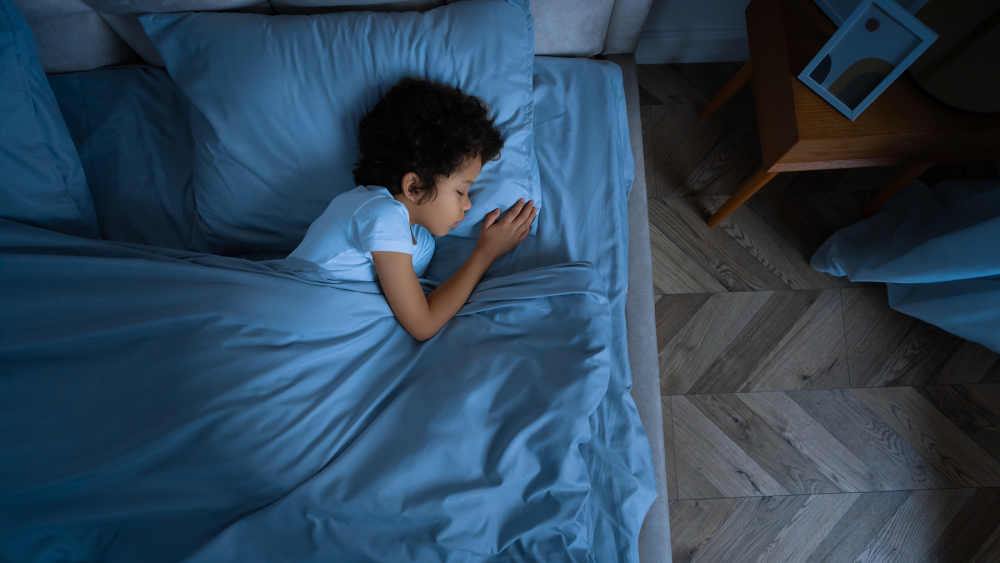“Sleep has many facets. It’s important for children because it promotes growth and development. The brain is more malleable at a young age and healthy sleep supports neural development,” said David Reichenberger, co-lead author and a doctoral student in biobehavioral health at Penn State during the research. “Poor sleep could impact their physical health and decision-making, which in turn could be linked to their decision to use substances.”
The study drew on data from 1,514 children in the Future of Families and Child Wellbeing Study, a diverse longitudinal birth cohort of children from 20 cities across the United States. Parents reported their child’s usual weekday bedtime at ages three, five, and nine. They also reported their child’s sleep duration at ages five and nine.
When the research team examined the link between childhood bedtime and sleep duration and later teenage alcohol and marijuana use, they found a longitudinal association. When teens went to bed later at age nine, they were 45% more likely to try alcohol by age 15 than other children who went to bed earlier at age nine. However, bedtime at age five was not associated with later alcohol use, nor was sleep duration at ages five or nine. As for marijuana use, a later bedtime at age five was associated with a 26% increased likelihood of trying marijuana by age 15, while an hour less sleep at age nine was associated with a 19% increased likelihood of trying marijuana by age 15.
The research team also looked at data from teens as young as 15 who reported their bedtime, sleep duration, and alcohol and marijuana use. They found that teens who went to bed later were 39 percent more likely to drink alcohol and 34 percent more likely to try marijuana. An hour less sleep was associated with a 28 percent higher likelihood of ever trying alcohol, but not marijuana use.
“Sleep during the pre-adolescent age is most critical in terms of future risk of substance use. During this developmental period, children are changing rapidly and their brains are maturing,” Reichenberger said, noting that previous research from other groups suggests that shorter sleep duration and later bedtimes may increase impulsivity and impair decision-making, which could influence substance use choices.
The findings highlight the critical role of sleep in many aspects of long-term health and well-being, the researchers said. For school-age children, creating a sleep-conducive environment and establishing an age-appropriate bedtime are key elements for good sleep.
“Exploring the relationship between sleep and substance use is an important area of research as we continue to grapple with an epidemic of opioid addiction and substance use,” Chang said. “It’s an important area where we need to continue to research and communicate our research findings to the general population, families and healthcare professionals.”
Other authors from Penn State include Orfeu Buxton, Elizabeth Fenton Susan Professor of Biobehavioral Health; Michael Russell, associate professor of biobehavioral health; Lindsay Master, data scientist; Akshay Krishnan, who was an undergraduate at the time of the research; and Stephen Strayer, former graduate student. Lauren Hale, professor of family, population and preventive medicine at Stony Brook University, also contributed to the article.
This work was supported by grants from the Eunice Kennedy Shriver National Institute of Child Health and Human Development, the National Institute on Drug Abuse, and a consortium of private foundations.

